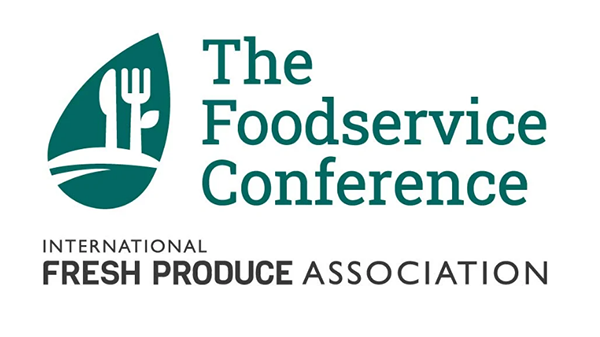June 28, 2023 Newark, DE and Washington, D.C. – U.S. elementary and secondary schools serve more than 30 million meals to kids each day, making K-12 schools large-volume, consistent, dependable foodservice buyers. They shape food preferences for kids who are three markets in one: current produce consumers, future consumers, and influencer consumers.
To help schools source, serve, and promote fresh fruit and vegetables to children, the International Fresh Produce Association (IFPA) BB #:378962 connects school menu planners and operators with the produce industry throughout the year, including at The Foodservice Conference, July 26-28 in Monterey, Calif.
At the conference, IFPA will host the K-12 School Foodservice Forum, a programming track that facilitates ideation and collaboration between school menu planners and produce industry leaders as both sectors seek to expand the variety of fresh fruit and vegetables available at schools. School foodservice operators will connect one-on-one with produce suppliers, explore new produce and packaging, and spend time with school nutrition peers to discuss best practices for incorporating more produce and scratch-cooking into their foodservice operation.
Expanding produce variety and knowledge
Diane Grodek, Executive Chef at the Austin Independent School District in Texas, introduced to her students new items she discovered at last year’s Foodservice Conference. “Attending the IFPA Conference had a direct impact on the menu items my district has planned for the upcoming school year,” she said. “I was exposed to vendors and produce varieties that I did not even know were an option for my schools. I was able to bring several ideas back to my team in Austin, which resulted in seven new fruit and vegetables for our 2024 menus, such as multi-colored fingerling potatoes, multi-colored cherry tomatoes, mini bell peppers, jicama sticks, rainbow baby carrots, and hearty mixes for salads with Brussels sprouts, cabbages and more.”
According to Alex DiNovo, President & COO of DNO Produce in Columbus, Ohio, “Schools are an important customer for our business, and having the opportunity to connect with a geographically diverse selection of major city school districts is very helpful, in part so we can get a greater sense of what’s happening in school foodservice departments across the country. We’re looking forward to this year’s event!”
Understanding school menu decisions, procurement
By including K-12 menu planners, IFPA guides the industry on how schools make menu decisions and procure produce and reinforces that school foodservice operators are valued partners and serious business professionals. School leaders leave the conference inspired, more knowledgeable about produce, and excited to be ambassadors for fruit and vegetables when they return to their school kitchens.
As of late June, more than 80 school menu planners were registered to attend. “These individuals have menu planning and/or purchasing authority for some of our nation’s largest K-12 school districts,” said Andrew Marshall, IFPA’s staff liaison for wholesaler-distributor members and lead staffer for the K-12 programs. Registrants include foodservice directors, school chefs, executives from foodservice management companies, and state child nutrition administrators. While in Monterey, school foodservice attendees will participate in a variety of networking and education programs, tour nearby produce fields, explore the expo, and more.
Responsibilities to students
“We’re often the largest ‘restaurant’ in town,” said Sandra Kemp, director of food?and?nutrition?services at the Albuquerque Public Schools in New Mexico. “It’s important to connect in-person with our suppliers, and this conference enables us to take advantage of the location to tour produce fields and see growing and processing operations first-hand. We have a responsibility to our students and the communities we serve, and offering fresh fruits and veggies is a very important part of what we do.”
USDA nutrition standards for school meals require that both fruit and vegetables be offered, and students must exit their lunch line with at least one serving of produce on their plate. In addition to lunch, many schools also offer breakfast, in-class fresh fruit and vegetable snacks, after-school suppers, and a summer meals program.??
“K-12 schools can be a collaborative partner to introduce thousands of school children to a new produce item, as well as to a variety traditional produce choices on a consistent basis,” Marshall said. “Programs like the K-12 School Foodservice Forum support school administrators to continue their efforts to serve more fresh foods, while also encouraging opportunities to ‘push the envelope’ when it comes to new produce choices that can be made available to children at school, or even promoted to parents and their communities.”
For more information about the K-12 School Foodservice Forum, including this year’s sponsors, visit the IFPA website here.
About the International Fresh Produce Association (IFPA)
The International Fresh Produce Association (IFPA)?is the largest and most diverse international association serving the entire fresh produce and floral supply chain and the only to seamlessly integrate world-facing advocacy and industry-facing support. We exist to bring the industry together to create a vibrant future for all. We grow our member’s prosperity by conducting advocacy; connecting people and ideas; and offering guidance that allows us all to?take action?with purpose and confidence.? While IFPA is built on the legacy of United Fresh and Produce Marketing Association, it is not just a combination. It is transformational. Recognizing the industry required an even more powerful and unified voice, the leaders of the former United Fresh and Produce Marketing Association chose not to merge, but rather to create an entirely new organization to supersede their organizations, effective January 1, 2022.
Contact: Ashley Sempowski, ASempowski@freshproduce.com +1 (202) 303-3406



